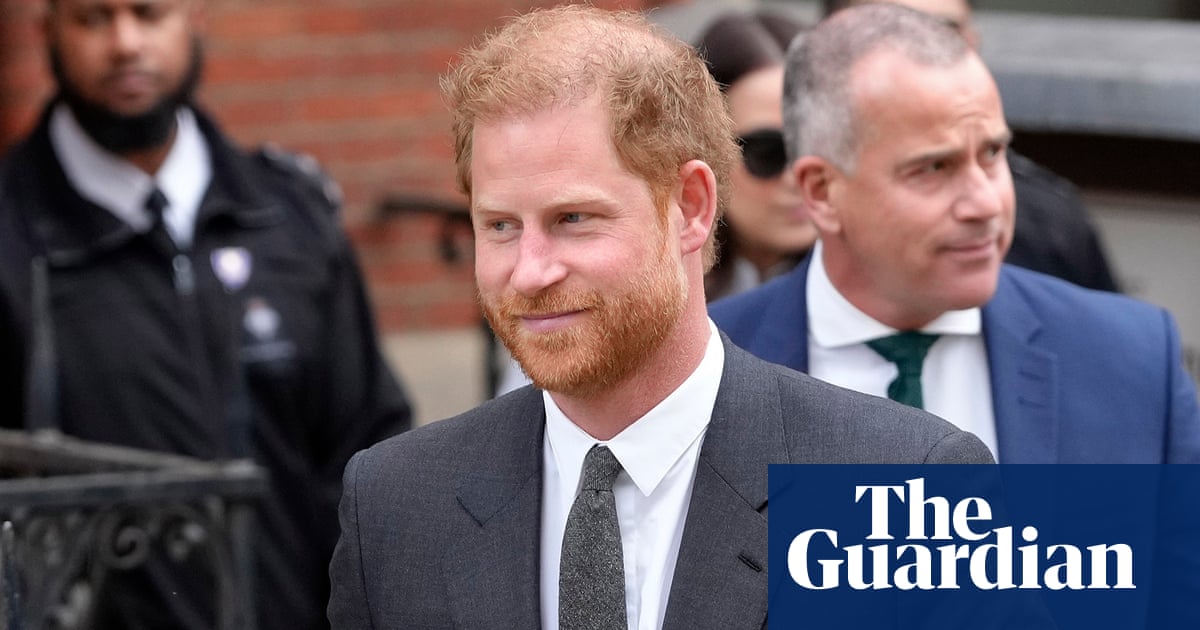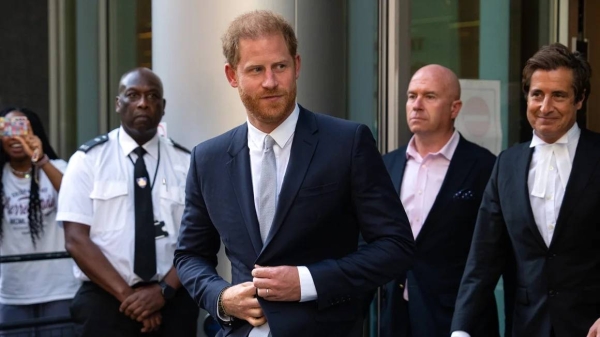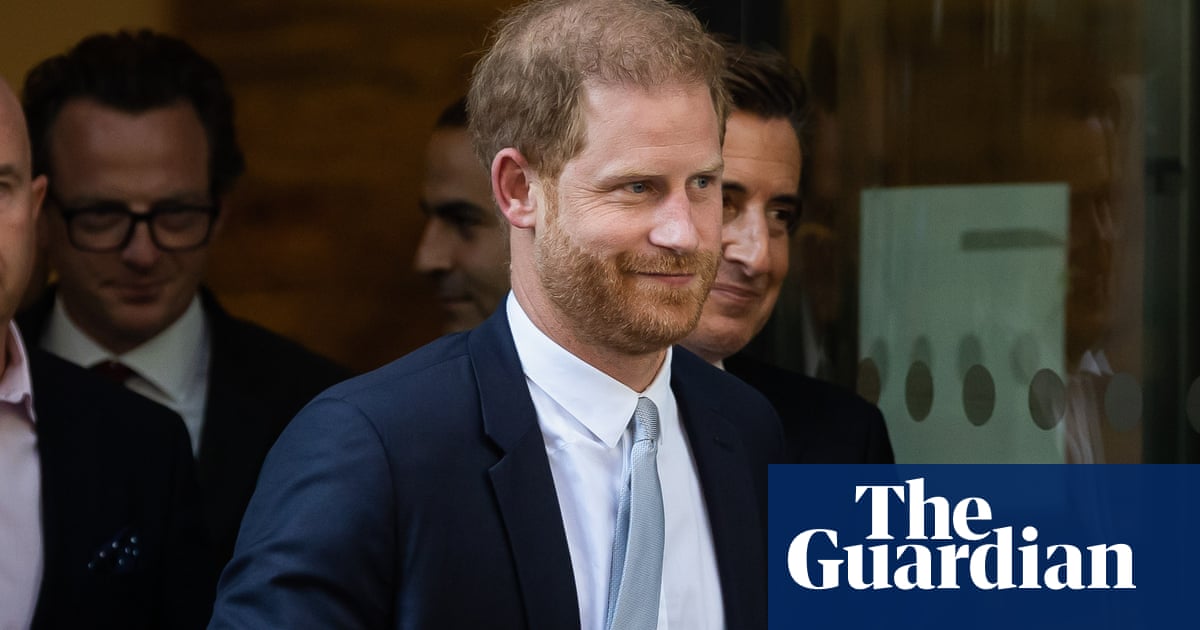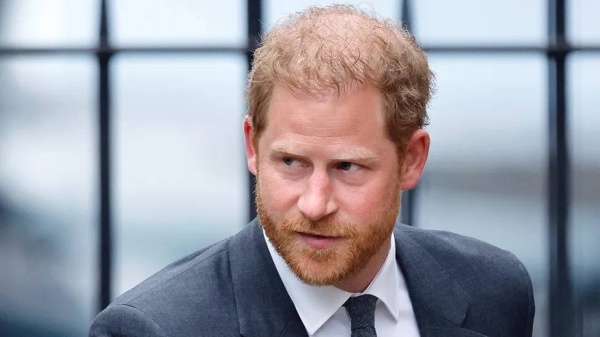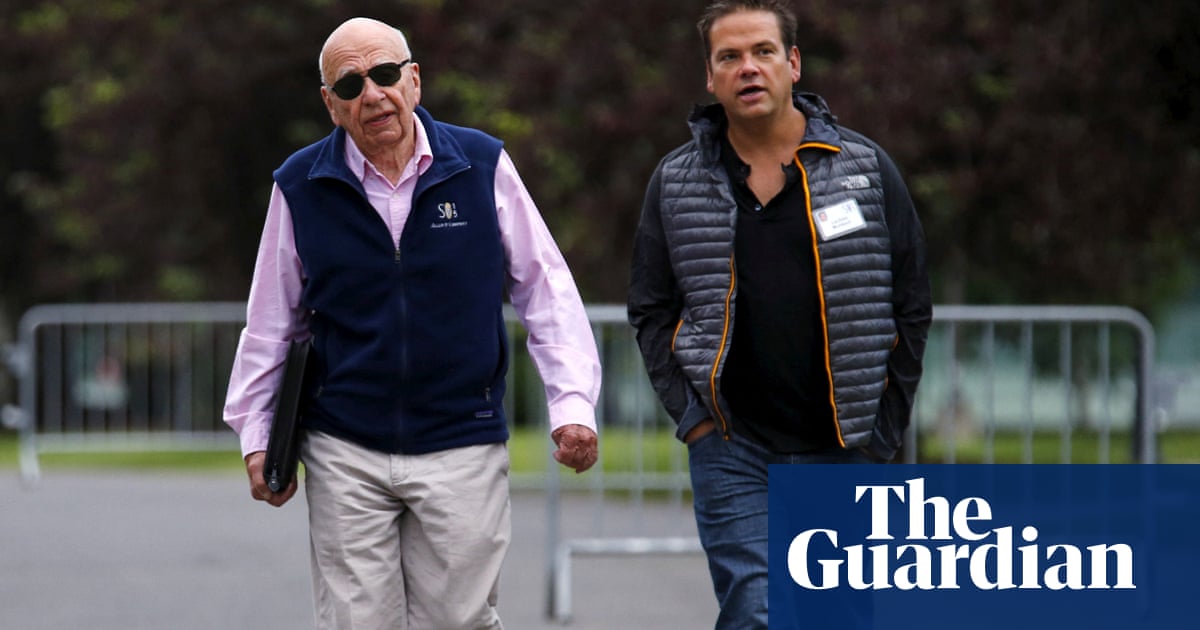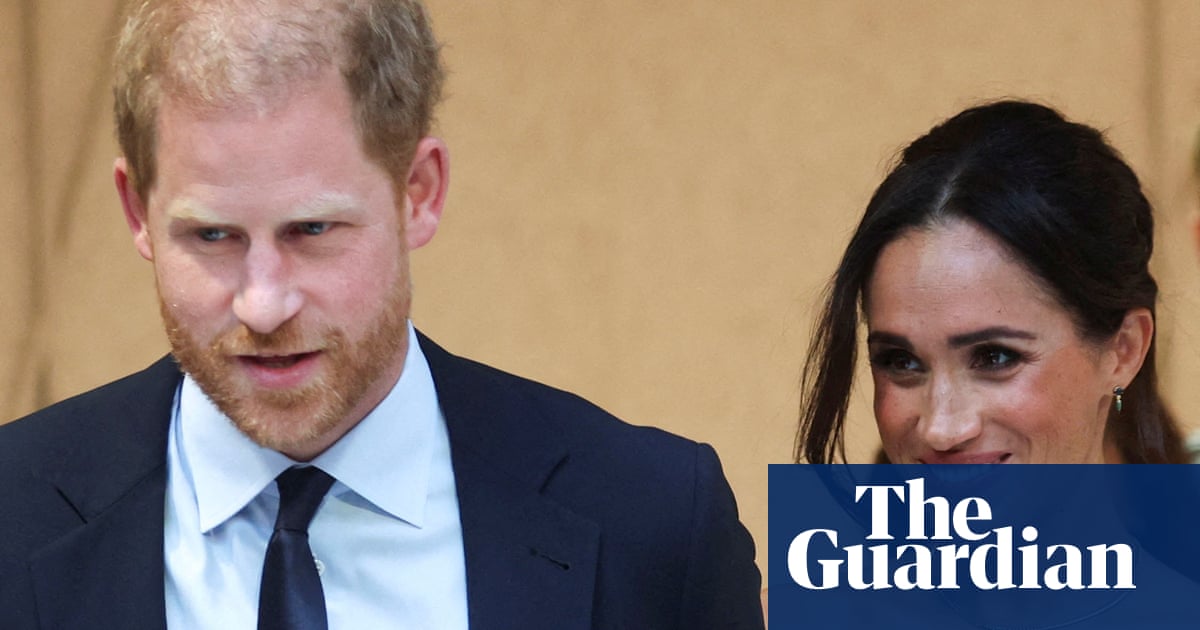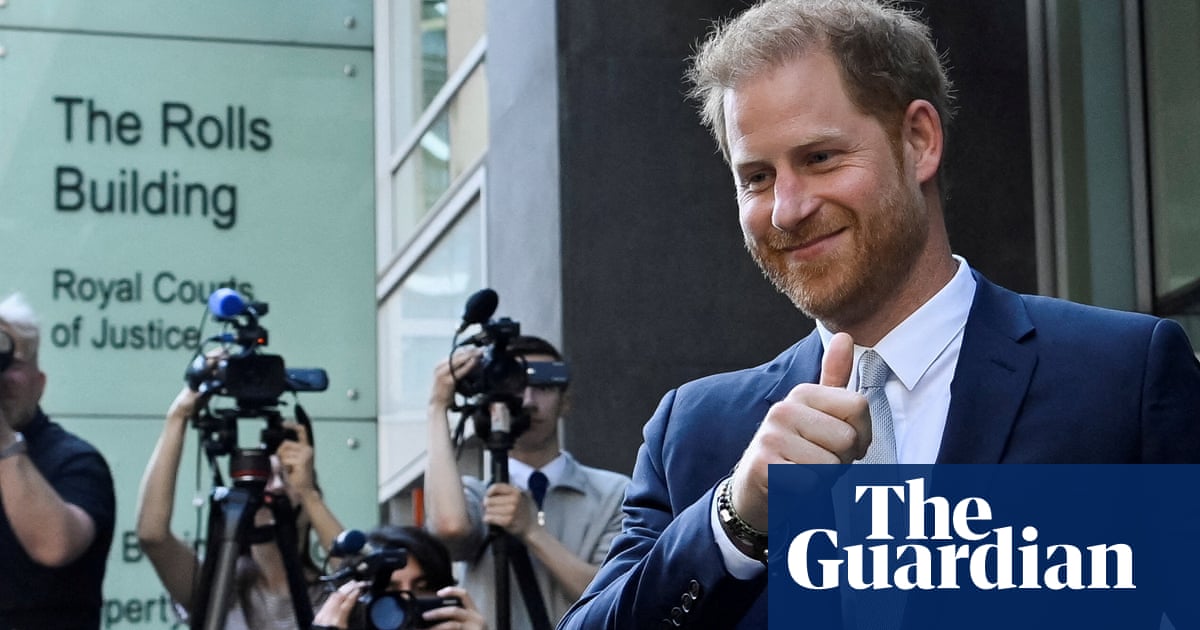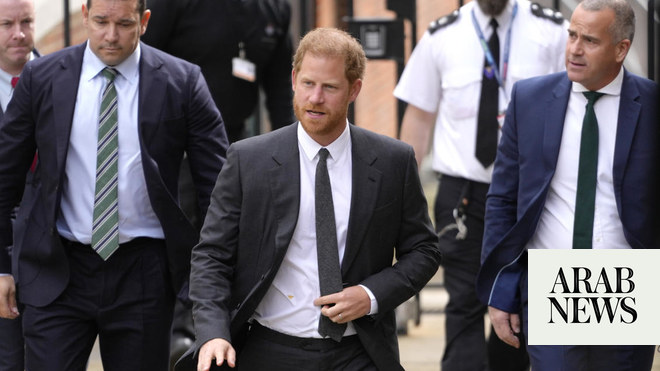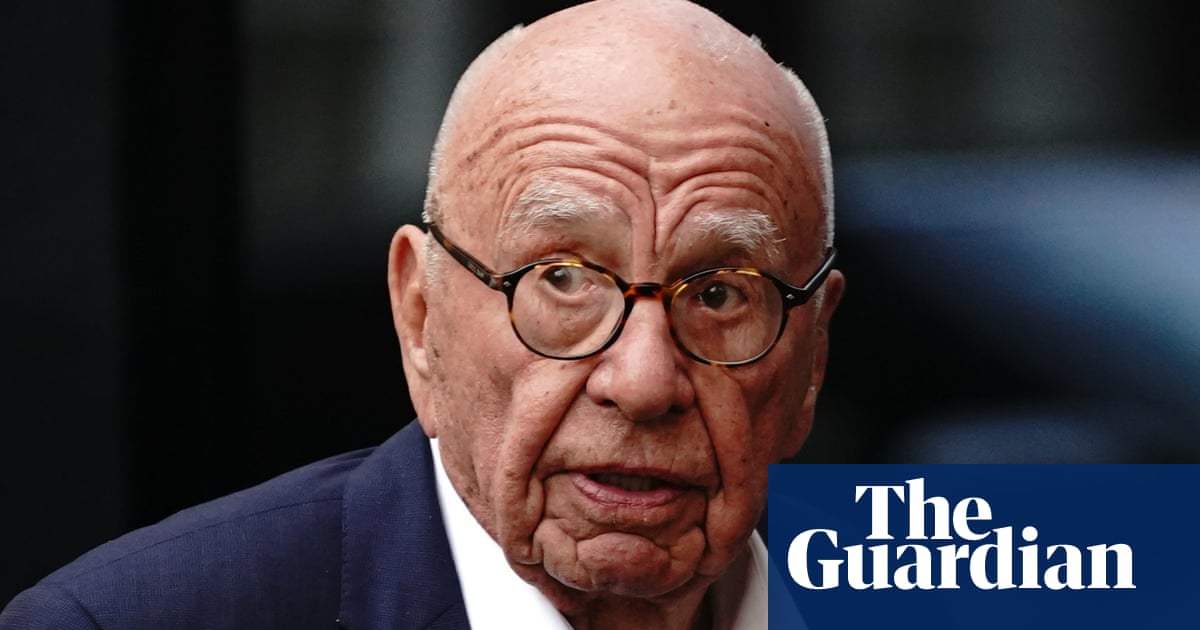
Prince Harry has failed in his legal bid to name Rupert Murdoch in allegations of extensive cover-up of wrongdoing at Murdoch’s newspapers.
The Duke of Sussex is locked in a legal battle with News Group Newspapers (NGN), the publisher of the Sun, which he has accused of phone hacking, unlawful information gathering, landline tapping and the covering up of widespread wrongdoing.
The case brought by Harry and other high-profile individuals, including the Labour peer Doreen Lawrence, is due to go to trial in January 2025. In March, Harry’s lawyers tried to update parts of their case after the release of more information.
Mr Justice Fancourt ruled that some of the requested amendments could be made, including a number relating to allegations that senior executives at NGN lied to the Leveson inquiry and concealed and destroyed evidence. Harry was allowed to make some changes to his individual case but could not introduce new allegations from 1994, 1995 and 2016 or new allegations of phone hacking.
Fancourt ruled that a number of “big ticket” requests made by the claimants could not be heard at the January trial, and that the individuals should pay a third of NGN’s costs.
In the March hearing, Harry and other claimants sought to point the finger of blame directly at Murdoch, arguing that the 93-year-old billionaire had “turned a blind eye” to an extensive cover-up of wrongdoing at his newspapers and overseen a “culture of impunity” at NGN, which was also the publisher of the now defunct News of the World.
At a hearing at the high court in London on Tuesday, Fancourt ruled that the individual allegations against Murdoch and some other senior executives should not be examined in the trial, as there were “already allegations pleaded against Rebekah Brooks and James Murdoch, who are his trusted lieutenants”.
Fancourt said: “Tempting though it no doubt is for the claimants’ team to attempt to inculpate the man at the very top, doing so will add nothing to a finding that Ms Brooks and Mr James Murdoch or other senior executives knew and were involved, if that is proved to be the case.”
He said lawyers for the claimants wanted to “shoot at ‘trophy’ targets” but that should not “become an end in itself”, adding: “The trial is not an inquiry.”
Making his judgment on the amendments, he said: “The claimants have sought to introduce a vast quantity of new allegations and material, much of which is likely to be highly contentious, and there is no prospect of the time listed for trial accommodating these allegations.”
The wider group of about 40 other claimants were also refused permission to extend the period of alleged wrongdoing from 1994 to 2016; add an annexe of private investigators; include allegations that the Sun’s publisher did not “deal honestly” with the police and CPS when it was under investigation in the wake of the phone-hacking scandal; or include fresh allegations that the publisher targeted politicians for political and commercial gain.
Harry was given permission to make allegations against a number of additional journalists and private investigators and make allegations of tapping of landlines and landline voicemails.
NGN has settled more than 1,300 claims since the Guardian exposed the phone-hacking scandal that led to the closure of the News of the World in 2011, but it has consistently denied that unlawful information gathering took place at the Sun.
A spokesperson for NGN said Wednesday’s judgment had “thoroughly vindicated” its position. Its lawyers have previously accused some of the claimants of using the case as a vehicle to attack the press and said some of the proposed changes to the claim appeared “to be designed to grab headlines, and not to progress the individual claims”.
In a statement, NGN said: “Lawyers for the claimants work with convicted phone hackers and employ anti-press campaigners and activists who seek to use the claims to make allegations within the protection of open justice principles.”
The claimants said they were pleased that the court had “granted them permission to amend their case in relation to a number of significant issues vigorously opposed by NGN”, including “lies told by its senior executives to the Leveson inquiry [and] NGN’s deliberation concealment and destruction of evidence with the knowledge of its most senior executives, including Rupert Murdoch’s own ‘trusted lieutenants’.”




